AARP Hearing Center
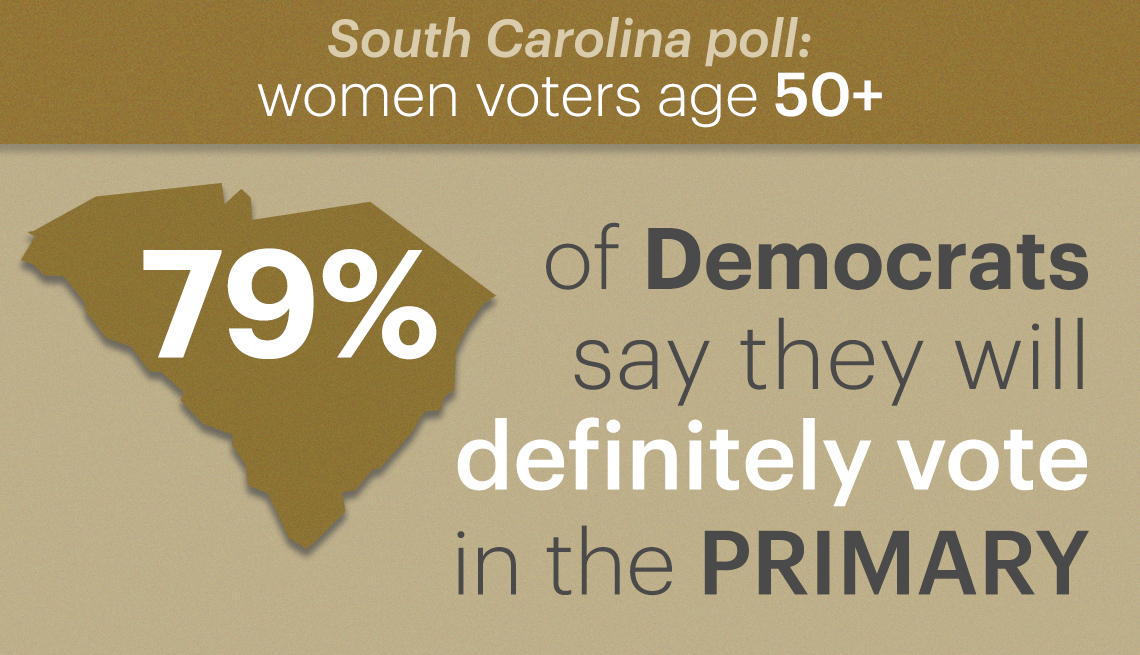
En español | Women age 50 and older in South Carolina are fired up about voting in the Palmetto State’s primary, with 79 percent saying they definitely will vote in the Feb. 29 contest, according to the results of a new AARP poll.
“I hope it tells me that they are excited about having a primary that could change the course of history,” says Teresa Arnold, AARP’s South Carolina state director.
“In South Carolina, the driving force in elections typically is African American women who are very, very involved in the election process and highly likely to vote,” adds Patrick Cobb, AARP South Carolina’s assistant state director for communications.
Ninety-two percent of the 50-and-older African American women polled said they definitely or probably would be voting in the primary. “And the South Carolina contest will be the first test of a Southern state primary that has a large concentration of African American women voters,” Cobb says.
The AARP survey was conducted by The Harris Poll. This is the fourth state in AARP’s “She’s the Difference” series, which will survey voters in a variety of states through the 2020 election season. Harris polled 1,000 South Carolina female registered voters age 50 and over through a combination of telephone and online questioning from Dec. 5 to Dec. 25. (See the results of the first national “She’s the Difference” poll, as well as the state surveys from Iowa, New Hampshire and Nevada.)
Historically, primary turnout tends to be lower than in the general election, especially among younger voters, says Tawny Saez, senior strategist for Harris. This means, she says, that “the older women vote will have even more influence on the final outcome of the South Carolina primary.”
The poll also found that women 50-plus are going to the polls concerned for not just their own welfare but that of their family and community, with 84 percent saying they’ll be thinking about their children and future generations when they vote.
Here’s a look at some of the survey’s other key findings.
1. Health care is the dominant issue
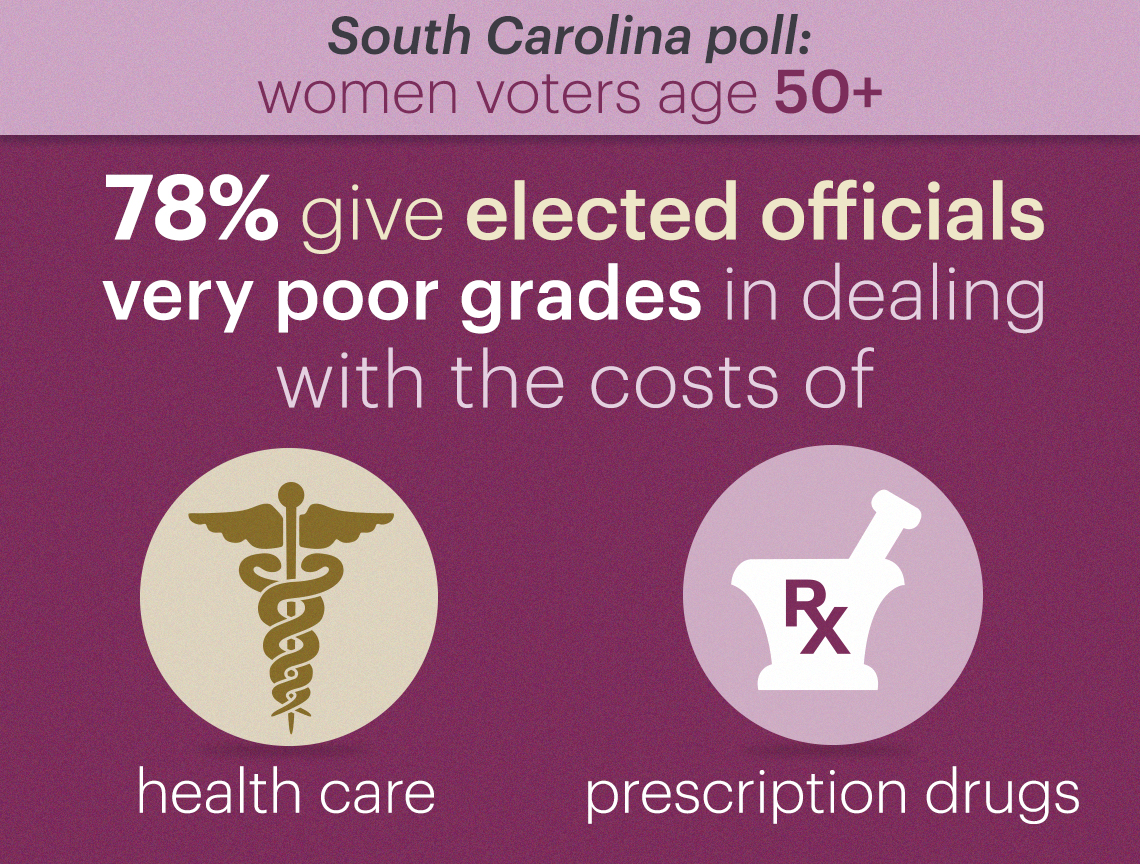
The survey results indicate that for female voters 50 and older in South Carolina, health care costs are both a personal and a pocketbook issue. Among all respondents, 70 percent say they know someone without health insurance; the number was 79 percent among African American women.
“If there’s anything that binds us together it’s our bipartisan concern with health care and health care costs,” says Arnold. “That should be a wake-up call to candidates,” she adds, especially in South Carolina, which has not expanded Medicaid — and that means a significant number of people with low incomes lack health insurance.
This data shows that South Carolina’s older women “are really living the hardship of high health care costs,” says Saez, and “that whatever leaders have been doing is not working for them.”

2. South Carolina women want leaders they can trust
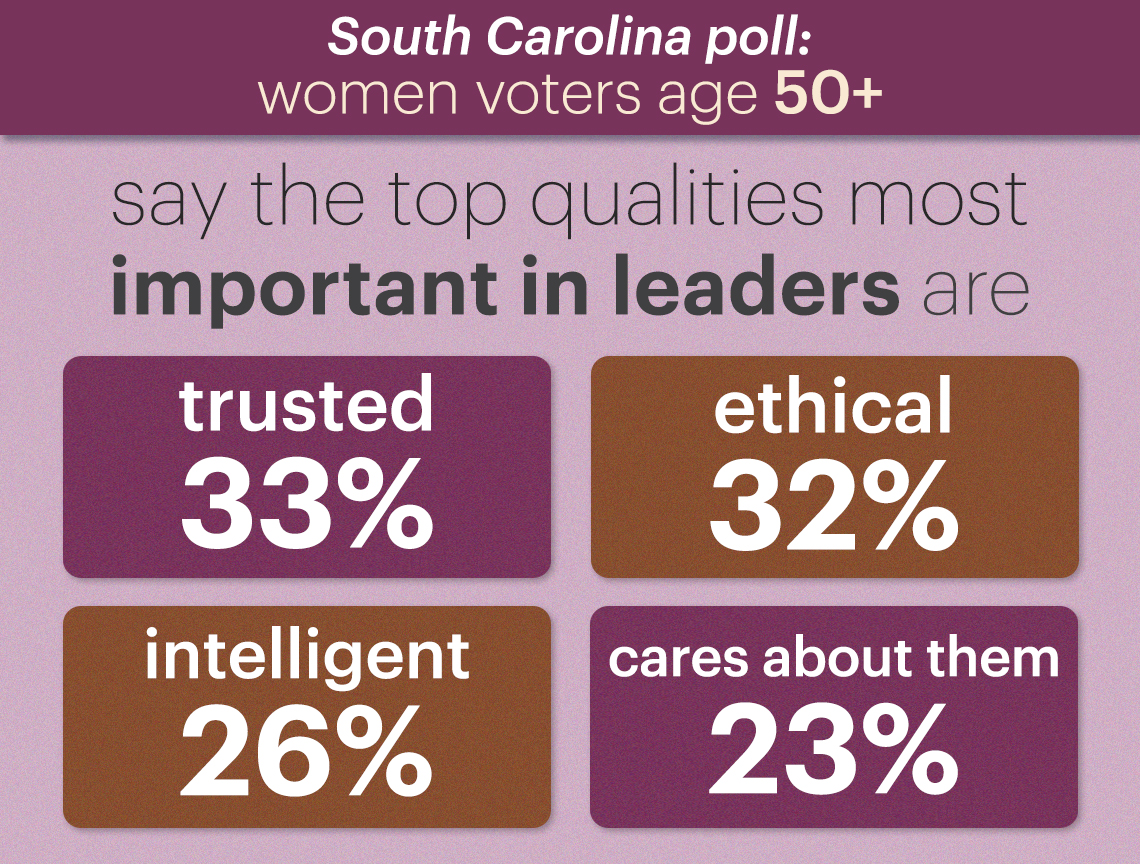
When asked what traits they most value in candidates, the demand for trusted, ethical and intelligent leaders crosses party lines, the survey found, with some differing emphases. Democrats are more likely to value competence (26 percent), while Republicans want a straight talker (24 percent). Independent voters are particularly likely to value a respectful leader (26 percent).
“I believe people are looking for a leader they can trust; and when you say ethical, that goes hand in hand with the trust factor,” Arnold says. Saez adds that these results show that South Carolina’s women want their leaders to view policy issues through the lens of these values and in terms of how their decisions will affect individual citizens and American households.

3. Work brings sense of purpose, financial security
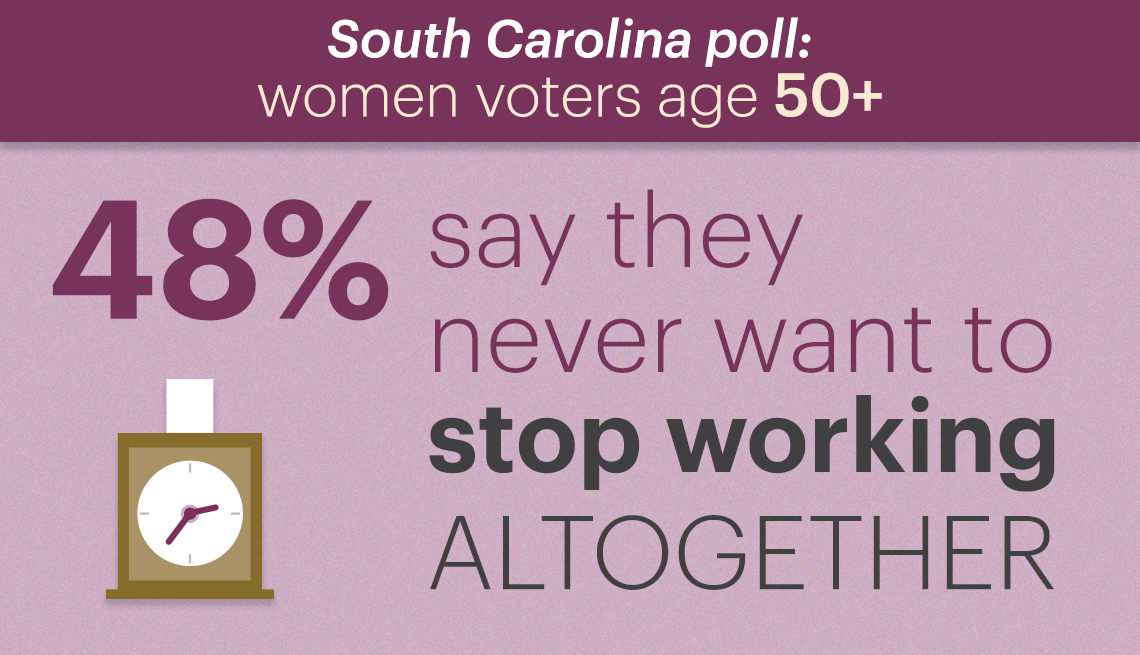
“For older women voters, the idea of not working is almost scary because you’ve lived your whole life defined by your careers,” Saez says. “What we see in this poll is that their work gives them a sense of purpose [76 percent] and also an aspect of financial security in terms of caring for their families.”
Among all the 50-plus respondents, 25 percent say they plan to either work part time, start a business or freelance as they get older, mostly because they want to stay busy (56 percent) but also because they will need extra money to make ends meet (52 percent).
“I think people are realizing that we are living longer” and that Social Security cannot be — and was never intended to be — the sole source of retirement income, Arnold says. “Especially in South Carolina, wages tend to be lower, and if you’re not making as much in wages, you’re not going to get as much in Social Security benefits. A lot of people have to keep working because they don’t have a choice.”

4. South Carolina women worried about affording retirement
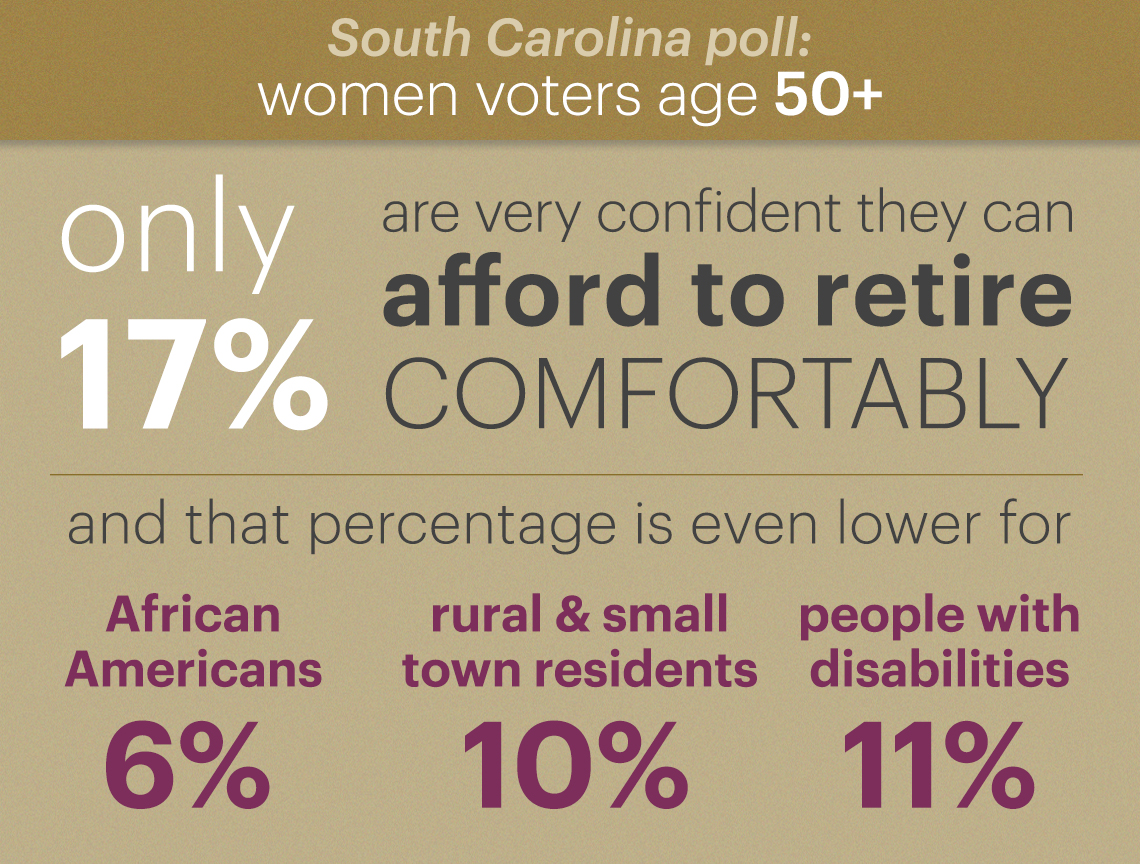
“I’m not surprised that this many people are very concerned about their retirement,” says Arnold. “We are the 50th worst state in the nation for 401(k) savings, making us woefully unprepared for retirement here.” That’s one reason, Arnold says, that AARP South Carolina is pushing state officials to enact a “Work and Save” program that would provide ways for employees without access to a 401(k) plan to save for retirement, such as through payroll deductions.
Among those surveyed, 60 percent give elected officials a “D” or “F” grade when it comes to making it easy to save for retirement. The survey also found that while 60 percent of those responding say retirement today is a luxury, 86 percent believe it is a right they have earned.































































